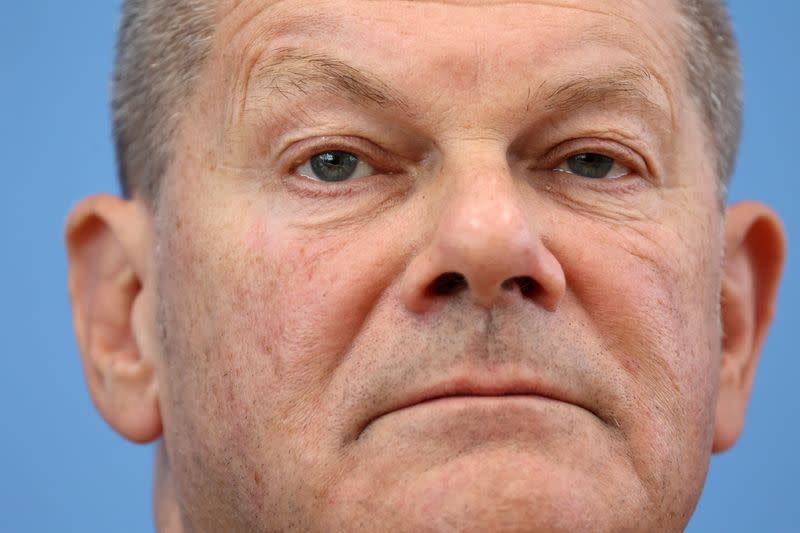Scholz concerned by death sentence for German national in Belarus

- Oops!Something went wrong.Please try again later.
- Oops!Something went wrong.Please try again later.
BERLIN (Reuters) -Chancellor Olaf Scholz is aware of the case of a German national sentenced to death in Belarus and is concerned, a government spokesperson said on Friday.
Germany's foreign ministry confirmed last week that a German national had been sentenced to death in Belarus. Belarusian human rights group Viasna identified him as Rico Krieger and said his charges related to terrorism and mercenary activity.
"Like the entire federal government, he (Scholz) is concerned about these events," a German government spokesperson told a regular press conference when asked about the case.
Krieger has described himself as an emergency services worker.
Russia's Tass news agency, citing footage on the Belarus-1 state TV channel, reported on Thursday that Krieger had asked Belarusian leader Alexander Lukashenko - an ally of Russian President Vladimir Putin - to forgive him.
Tass quoted Krieger as saying Ukraine's SBU security service instructed him to photograph military sites in Belarus and to plant a backpack on train tracks southeast of the capital Minsk that later exploded. No one was hurt.
"I truly hope that President Lukashenko will forgive and pardon me," Krieger said.
Foreign Minister Annalena Baerbock said it was "unbearable how the Belarusian regime paraded a German citizen on television."
"We must do everything to ensure that his rights are protected - the death penalty has been abolished in Europe," Baerbock said.
The local German consulate is in contact with the detainee, a spokesperson for the foreign office in Berlin said.
She criticised the practice of showing detainees in videos, adding that this violated the subject's dignity and that Germany was appealing to Belarus to stop this practice.
(Reporting by Christian Kraemer in Berlin, Writing by Rachel More and Friederike Heine, Editing by Timothy Heritage)

